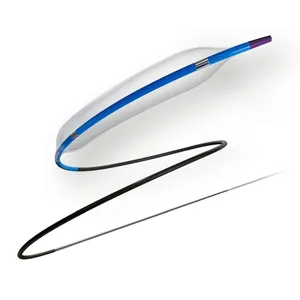







Coronary stents are a pivotal medical device in the realm of cardiology, specifically designed to prevent the closure of arteries in the heart. These tiny, expandable tubes play a crucial role in the treatment of coronary heart disease, aiding in the restoration of blood flow. The application of stent placement in heart procedures is a common practice during angioplasty, a technique used to open narrowed or blocked arteries.
The variety of coronary stents available includes bare-metal, drug-eluting stent types, and bioresorbable vascular scaffolds. Each type is crafted from different materials, ranging from metal alloys to advanced polymers, with the most common being stainless steel and nitinol. The choice of stent is influenced by the specific needs of the stent heart operation, including the size and location of the artery blockage.
Coronary stents are engineered to provide support to the vessel walls after a stent operation in heart. The advanced design of medicated stents slowly releases medication that helps prevent the recurrence of blockage. This feature is particularly beneficial in reducing the risk of restenosis, a common complication where the artery narrows again after treatment.
The primary application of coronary stents is to treat blockages within the coronary arteries. They are a key component in procedures such as angioplasty stent insertion and are vital in managing stent for blockage in heart conditions. The deployment of a stent can be a life-saving intervention for patients with significant coronary artery disease.
Selecting the appropriate coronary stent requires careful consideration of the patient's condition and the specifics of the cardiac stent placement. Healthcare professionals must evaluate the compatibility of the stent with the patient's anatomy and the nature of the coronary heart disease stent required for optimal treatment outcomes.
In conclusion, coronary stents are a cornerstone in interventional cardiology, offering a range of options to address various cardiac conditions. While Alibaba.com facilitates the connection between suppliers and buyers, it is imperative for buyers to consult with medical professionals to determine the most suitable type of stent for their clinical needs.